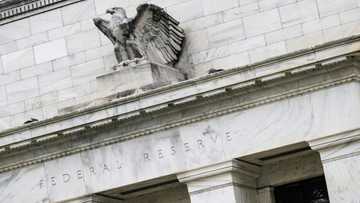UBS, Credit Suisse tie-up may not lead to Swiss bliss

Source: AFP
PAY ATTENTION: Enjoy reading our stories? Join YEN.com.gh's Telegram channel for more!
The marriage of UBS and Credit Suisse was hastily arranged to prevent a global financial meltdown -- but the resulting megabank could cause domestic problems in Switzerland, the central bank admitted Thursday.
The Swiss National Bank, which played matchmaker in Sunday's takeover of Credit Suisse, said the creation of one giant bank in Switzerland would create competition issues that would need addressing carefully.
UBS was already the biggest bank in the country -- and will now become even larger after taking on the second-most important bank in the wealthy Alpine nation, where a vibrant banking scene is central to Swiss culture.
With Credit Suisse shares in freefall last week, the Swiss government, the SNB central bank and the FINMA financial regulators strongarmed UBS into buying its stricken rival before the markets reopened on Monday.
SNB chairman Thomas Jordan said this was done to avoid triggering a wider banking crisis around the world, -- though he accepted that domestic banking in Switzerland was taking a hit.
Future competition
"UBS will be a very big bank and competition issues will be relevant," Jordan told reporters at the SNB headquarters in Zurich.
PAY ATTENTION: Follow us on Instagram - get the most important news directly in your favourite app!
"We have to make sure that in the future in Switzerland there will be enough competition for providing banking services. I think this is in the interests of everybody -- including UBS."
He said FINMA and the Swiss finance ministry would have have to look at dealing with the situation.
"But at this moment, I think the focus has to be ensuring that we can maintain financial stability under all circumstances."
UBS and Credit Suisse were both among the 30 banks around the world deemed 'too big to fail' and therefore considered Global Systemically Important Banks.
Behind them in Switzerland, only Raffeisen and PostFinance -- the financial services unit of Swiss Post -- rank as domestic systemically important banks, along with the cantonal banks of the Zurich and Vaud, which have limited reach beyond those regions.
The implosion of Credit Suisse came after the collapse of two tech-lending banks in the United States triggered fears of international contagion.
Swiss banking 'robust'
Analysts considered whether Credit Suisse could have sold to a foreign bank, broken up or wound down in an orderly bankruptcy.
"We were in an extremely fragile environment where we had this banking crisis in the United States and enormous nervousness in financial markets in general," Jordan said.
He said any outcome other than the UBS takeover "would not work in order to stabilise the situation".
It would have created "enormous uncertainty and would then also put the Swiss financial system, including the Swiss economy, in jeopardy -- but not only Switzerland. It could also be then the trigger of a bigger, larger global financial crisis."
The SNB boldly said in a statement that the takeover had "put a halt to the crisis", while Jordan insisted that Switzerland's emblematic banking industry was in good health.
"The Swiss banking system is very resilient and robust," Jordan said.
Interest rates hiked
The SNB announced a hefty 50 basis points interest-rate hike to 1.5 percent to tackle inflation, despite turmoil in the banking sector.
The central bank said inflation had risen again and stood at 3.4 percent in February, "clearly above the range the SNB equates with price stability".
Its new forecast put average annual inflation at 2.6 percent for 2023, and 2.0 percent for 2024 and 2025.
"Without today's policy rate increase, the inflation forecast would be even higher over the medium term," the SNB said.
The central bank said GDP grew by 2.1 percent in 2022 and overall GDP was likely to increase by around one percent this year.
"The forecast for Switzerland, as for the global economy, is subject to high uncertainty. In the short term, the main risks are an economic downturn abroad and adverse effects of the turmoil in the global financial sector," the SNB said.
New feature: Сheck out news that is picked for YOU ➡️ click on “Recommended for you” and enjoy!
Source: AFP




